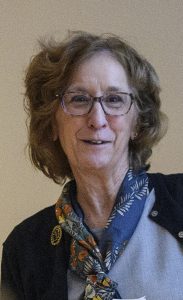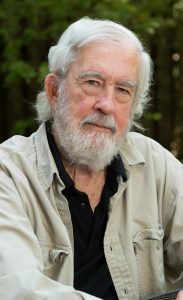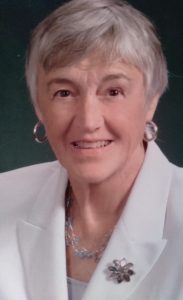OXFORD, Miss. – This fall, a panel of speakers organized by the Overby Center for Southern Journalism and Politics will discuss the violent 1962 integration of the University of Mississippi. Later, another panel will give three African American women, leaders of major Southern newsrooms, an opportunity to speak on the climate of journalism in America.
The juxtaposition of the two events was intentional, said Marquita Smith, assistant dean of graduate programs at the UM School of Journalism and New Media and 2022 Overby Center fellow.
“It’s incredible linkage that we can have this conversation with three African American females from top newspapers in the country,” said Smith, who will moderate the Oct. 5 event. “They are involved because of the people whose shoulders we still stand on.”
The “James Meredith and the Media: The Legacy of a Riot” panel, at 5:30 p.m. Sept. 27 in the Overby Center, will feature Sidna Brower Mitchell, Kathleen Wickham and Curtis Wilkie, who plan to talk about the effects of the Oct. 1, 1962, riot as the university’s first African American student, James Meredith, integrated the campus.
Alumnus Jesse Holland, journalist and professor at George Washington University, will moderate the event.
Wickham, professor of journalism at the UM School of Journalism and New Media and author of multiple books on the civil rights era, has researched the unsolved murder of Agence France-Presse reporter Paul Guihard, who was shot in the back and killed during the riot.
“I have done extensive research on the only journalist murdered during the civil rights movement, Paul Guihard,” Wickham said. “I’ve become his advocate on campus.”
Brower Mitchell, a senior in 1962, was editor of The Daily Mississippian and was harassed for asking for an end to the violence. Brower Mitchell, who went on to work in newspapers and a New Jersey state agency on affordable housing for decades following her graduation, said she was spit on by sorority sisters and received numerous letters and threats in response to her call for peace.
Wilkie, acclaimed journalist, author and former UM journalism professor, was also a senior when Meredith first walked onto campus in 1962. After the riot, Wilkie wrote home to his parents, detailing the events of the day, and included a map with the location of the rioters and U.S. marshals and where Guihard was murdered.
That letter is housed in the UM Libraries Department of Archives and Special Collections.
Brower Mitchell and Wilkie described changes on campus following the riot. Armed guards lived on campus, students had to pass through checkpoints to get into class, and students were under curfew for several weeks.
“If it happened to rain, it would bring out the reek of the tear gas again and people would cry all over again in classrooms,” Wilkie said. “It was almost like living under martial law.”
The point of her editorial in The Daily Mississippian, titled “Violence will not help,” was to remind students that the battle they fought was long over, Brower Mitchell said.
“My theme was ‘Don’t riot, boys,'” she said. “This was a riot that was fought 100 years ago – and America won.”
The Overby Center also will host the “Sisterhood of Editors Panel,” with three African American women who lead Southern newsrooms, at 5:30 p.m. Oct. 5. The speakers, Katrice Hardy, of the Dallas Morning News; Mary Irby-Jones, a UM alumna who leads the Louisville Courier-Journal; and Jewell Walston, of the Asheville Citizen-Times, will discuss the difficulties and challenges of leading modern newsrooms, particularly as Black women.
Irby-Jones, who graduated in 1988 and was the first Black female editor of both The Clarion Ledger in Jackson and Courier-Journal in Louisville, Kentucky, said she has always known the impact of Meredith’s work on her life.
“Meredith’s contributions, his sacrifice to integrate Ole Miss at a time that it was very difficult is something that I’ve admired and known since I started looking at Ole Miss,” Irby-Jones said. “I grew up very poor in rural Mississippi. If it were not for him and the sacrifices that he made, I would not be where I am today.”


